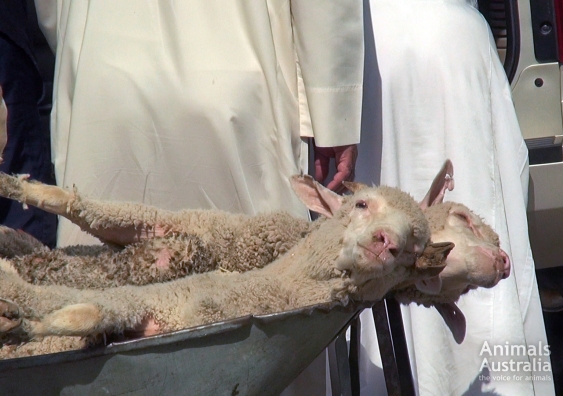Why are our livestock still turning up in places where they are treated cruelly?
It is rapidly becoming clear that nobody is capable of remaining in charge of the welfare of Australian animals once they arrive in the chaos of the developing world, writes Siobhan O'Sullivan.


